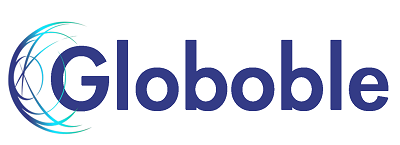Technology has revolutionized the healthcare industry, providing advanced tools and solutions to optimize processes and improve patient care. One of the areas that have greatly benefited from technology is revenue cycle management (RCM). RCM refers to the process of managing financial transactions and claims between healthcare providers and insurance companies.
In this article, we will discuss the role of technology in optimizing RCM processes for healthcare providers.
Automating Administrative Tasks
One of the major advantages of technology in RCM healthcare services is the automation of administrative tasks. With the use of electronic health records (EHRs), healthcare providers can streamline their processes and eliminate manual paperwork. This not only saves time but also reduces the risk of errors and improves data accuracy. Additionally, automated claims management systems can help providers in tracking and managing claims from different insurance companies, making the process more efficient and less prone to errors.
Real-Time Eligibility Verification
Technology has also made it easier for healthcare providers to verify patient eligibility in real time. With the use of electronic data interchange (EDI) systems, providers can instantly check a patient’s insurance coverage and benefits, reducing the risk of claim denials due to incorrect or outdated information. Real-time eligibility verification helps streamline the billing process, resulting in faster payments and reduced denials.
Integration of Payment Processing Solutions
The integration of payment processing solutions into RCM processes has also been a game-changer for healthcare providers. For instance, with the use of key steps of RCM for a behavioral healthcare practice, providers can easily process payments and track outstanding balances. This not only improves the patient experience but also reduces the risk of revenue leakage for providers. Additionally, integrating payment processing solutions with EHRs can help streamline the billing process and eliminate duplicate data entry.
Data Analytics for Performance Tracking
Another significant role of technology in optimizing RCM processes is the use of data analytics for performance tracking. With the help of advanced analytics tools, healthcare providers can identify trends, patterns, and potential issues in their revenue cycle. This helps them make data-driven decisions to improve processes and address any bottlenecks in the revenue cycle. Data analytics also provide insights into areas where providers can reduce costs and optimize revenue.
Improved Patient Engagement
Technology has greatly improved patient engagement in the revenue cycle management process. With the use of patient portals and mobile apps, patients can easily access their medical records, make payments, and communicate with their healthcare providers. This not only improves the patient experience but also increases patient satisfaction and loyalty. Moreover, by involving patients in the RCM process, providers can reduce the risk of claim denials due to incorrect patient information.
Conclusion
Technology has played a crucial role in optimizing RCM processes for healthcare providers. From automation of administrative tasks to real-time eligibility verification and integration of payment processing solutions, technology has greatly improved efficiency, accuracy, and patient engagement in the revenue cycle management process. So, if this is something that you are considering, then it is equally crucial to know how much healthcare RCM services cost so that you can be prepared financially to implement new technology. Remember, embracing technology in RCM can help healthcare providers reduce costs, increase revenue, and ultimately improve patient care. It is a win-win situation for both providers and patients. So, let’s embrace technology and continue to improve the healthcare industry together!







